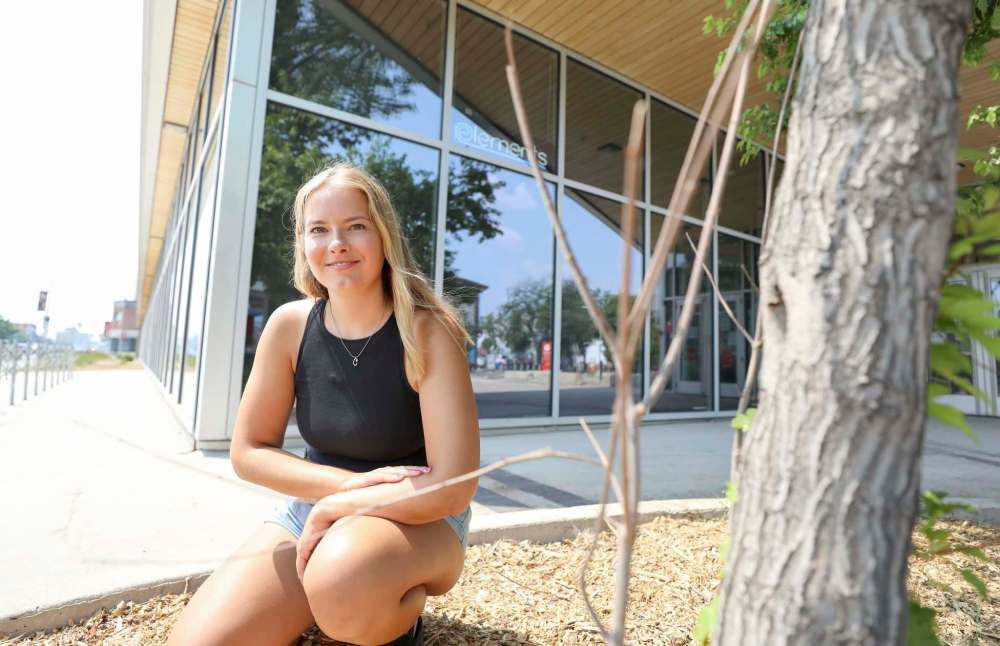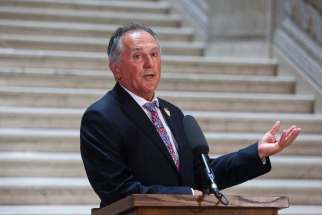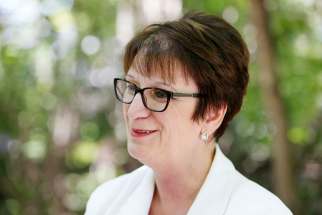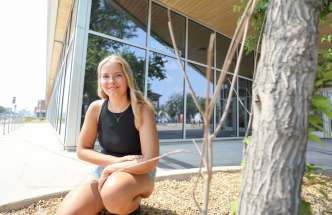Driven by their need to protect the planet More students drawn to climate studies
Read this article for free:
or
Already have an account? Log in here »
To continue reading, please subscribe:
Monthly Digital Subscription
$0 for the first 4 weeks*
- Enjoy unlimited reading on winnipegfreepress.com
- Read the E-Edition, our digital replica newspaper
- Access News Break, our award-winning app
- Play interactive puzzles
*No charge for 4 weeks then price increases to the regular rate of $19.00 plus GST every four weeks. Offer available to new and qualified returning subscribers only. Cancel any time.
Monthly Digital Subscription
$4.75/week*
- Enjoy unlimited reading on winnipegfreepress.com
- Read the E-Edition, our digital replica newspaper
- Access News Break, our award-winning app
- Play interactive puzzles
*Billed as $19 plus GST every four weeks. Cancel any time.
To continue reading, please subscribe:
Add Free Press access to your Brandon Sun subscription for only an additional
$1 for the first 4 weeks*
*Your next subscription payment will increase by $1.00 and you will be charged $16.99 plus GST for four weeks. After four weeks, your payment will increase to $23.99 plus GST every four weeks.
Read unlimited articles for free today:
or
Already have an account? Log in here »
Hey there, time traveller!
This article was published 15/07/2021 (1608 days ago), so information in it may no longer be current.
As the climate crisis shows itself on the Prairies via heat waves, drought and wildfires, more students are pursuing environmental science research and studying mitigation strategies.
“There’s a lot more extremely hot days, a lot more drought, and this gives me fear for the unknown,” said Catherine Goltz, a 24-year-old researcher, who graduated from the University of Winnipeg with a bachelor of science in geography with honours in 2020.
“(Research) gives me more security in understanding how the environment works. It gives me some security in knowing we’re all quite smart and we have the ability to move forward in ways to protect the environment.”

Nora Casson says her students’ energy and drive give her hope as she tackles the overwhelming challenge of climate change as co-director of the Prairie Climate Centre.
The centre, based at the U of W, has had no trouble recruiting research trainees in recent years.
In the last decade, enrolment in the school’s undergraduate department of environmental studies has increased by nearly 200 per cent. U of W plans to welcome its inaugural class of graduate students in a new environmental and social change program this fall.
A dozen masters candidates, who are interested in everything from climate change communications to engagement with Indigenous communities about climate solutions, are entering the interdisciplinary program.
“I’ve had a lot of conversations with students where they identify climate change as the most important issue of our time and they’re often looking for ways that they can effect positive change,” said Casson, a geography instructor who is both co-chair of the graduate program and a Canada Research Chair in environmental influences on water quality.
Be it via academics, activism, or a combination of both, students are keen to protect the planet, she said.
Goltz spent much of her time at U of W researching methods to stop toxic algae blooms, which will only become more prevalent and persistent as the planet warms, in Lake Winnipeg and beyond. She is now pursuing a master’s degree at Wilfrid Laurier University to further her understanding of the problem.

Interest and concerns about protecting natural resources and living sustainably motivated Michael Kvern to pursue his own climate-related research at U of W. Throughout his undergrad, which wrapped up in winter 2020, Kvern investigated northern energy security in Churchill.
The 24-year-old said measuring energy consumption data and discussing renewable options in the north opened his eyes to the power of community-based research, as well as the value of relationships. As far as he is concerned, sustainability research is an empowering tool used to pressure governments to enact strong policies to make change — but political will is currently missing.
Faced daily with the consequences of the climate crisis and resistance to radical change, it is no surprise researchers grapple with eco-anxiety.
There’s a disconnect between environmental challenges and what’s being done to address them, said Jenalee Kluttz, a climate and environmental justice fellow at the University of British Columbia’s sustainability institute. “We’re at a point in time where giving up is really not an option, and so, you have to really figure out how you can work best and still take care of yourself,” said the PhD candidate in educational studies, who has researched climate anxiety.
While calling eco-anxiety a normal response to crisis, Kluttz said it’s important schools support students, with opportunities for community-engaged work and community support being key.
Casson echoed those sentiments. She noted U of W’s new program focuses on how complex problems require interdisciplinary skills and collaboration.
“In order to solve a big, complicated challenge like climate change, it’s not going to be someone with a degree in climatology working in a room by themselves. It’s going to be that person, working with a person who studied water resources, working with a person who studied community forestry,” she said.
maggie.macintosh@freepress.mb.ca
Twitter: @macintoshmaggie

Maggie Macintosh reports on education for the Winnipeg Free Press. Funding for the Free Press education reporter comes from the Government of Canada through the Local Journalism Initiative.
Our newsroom depends on a growing audience of readers to power our journalism. If you are not a paid reader, please consider becoming a subscriber.
Our newsroom depends on its audience of readers to power our journalism. Thank you for your support.
History
Updated on Thursday, July 15, 2021 7:28 PM CDT: Corrects spelling of Kluttz, fixes typo in cutline







